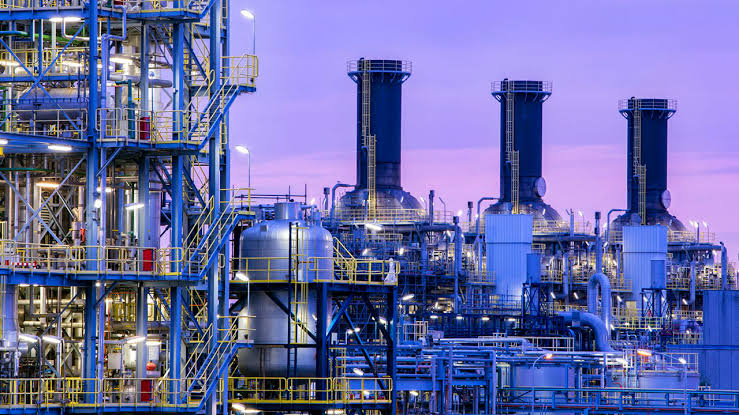The Dangote Refinery and Petrochemicals Company has not been issued any license by the Nigerian Midstream and Downstream Petroleum Regulatory Authority to operate in the country and as such it is operating illegally.
The Authority Chief Executive, Mr. Farouk Ahmed, revealed this during an interview with newsmen in Abuja.
Farouk said the allegations raised by Dangote Refinery that its operations are being scuttled owing to lack of supply of crude oil by International Oil Companies are untrue.
Specifically, he said contrary to the narrative being pushed by the Chief Executive of the Refinery, Alh Aliko Dangote that the company is set for operation, it is indeed just about 45 per cent completed.
A company’s operating license is an official document issued by the responsible governmental authority, usually the municipal government or another regulatory agency, that allows the company to operate legally in a specific location and under certain conditions.
With the revelation by the NMDPRA that Dangote Refinery has not been issued operational license, it therefore means the Refinery is currently being operated illegally in Nigeria.
The Vice President of Oil and Gas at Dangote Industries Limited, Devakumar Edwin had accused International Oil Companies of refusing to sell crude oil to their refinery, adding that the company buys crude from IOCs at $6 above the market price.
Edwin had said, “It seems that the IOCs’ objective is to ensure that our petroleum refinery fails. It is either they are deliberately asking for a ridiculous/humongous premium or they simply state that crude is not available.”
His assertions differ from Section 109 of the PIA, which provides that the sale of crude oil to refineries must reflect commercial viability.
While the law allows for a “willing buyer and willing seller” arrangement, such transactions must be done in a manner that will not make the seller run at a loss.
Section 109 of the PIA which deals with the National Crude Oil Requirement of Refineries states that the Nigerian Upstream Petroleum Regulatory Commission shall base the allocation of the domestic crude oil supply obligation applicable to the respective lessees on the National Crude Oil Demand requirement supply curve, which is the supply curve of crude oil or condensate that can be supplied on a voluntary basis at the prevailing international market price.
The section reads, “The supply of crude oil shall be commercially negotiated between the lessee and the crude oil refining licensee, having regard to the prevailing international market price for similar grades of crude oil.
“The buyer shall provide payment guarantees as required by the applicable seller. The payment for crude oil purchased pursuant to the obligations shall be in US dollars or Naira, as may be agreed between the seller and the buyer
“A lessee who has not complied with his DCSO were a willing buyer(s) exist shall not be granted an export permit for the export of crude oil from his lease area.”
Speaking on the operations of the company, the NMDPRA Boss said the government cannot rely heavily on one refinery to feed the nation.
Specifically, he said Dangote Refinery is requesting that the regulators should suspend or stop all importation of petroleum products, especially AGO and Jet Kero, and direct all marketers to the refinery.
This, he added, is not good for the nation in terms of energy security, noting that it would also make Dangote a monopoly.
He said, “Well, just like you rightly asked, there are a lot of concerns about supply of petroleum products nationwide and the claims by some media houses that were trying to scuttle Dangote Refinery that is not so.
“Dangote Refinery is still in the pre-commissioning stage. It has not been licensed yet. We haven’t licensed it yet. They are still in the pre-commissioning stage. I think they are about 45 per cent in completion rather.
“So, we cannot rely heavily on one refinery to feed the nation because the company is requesting that we should suspend or stop all importation of petroleum products, especially AGO and Jet Kero, and direct all marketers to the refinery.
“That is not good for the nation in terms of energy security, and that is not good for our markets in terms of monopoly. So, in terms of quality, currently, the AGO quality in terms of sulfur in the lowest as far as a West African requirement of 50 ppm.
“Dangote Refinery, as well as some major refineries, like Walter Smith’s refinery, other refineries, they produce 650 to 1,200 ppm. So, in terms of quality, their quality is much, much inferior to the imported commodities.”
